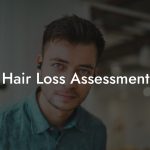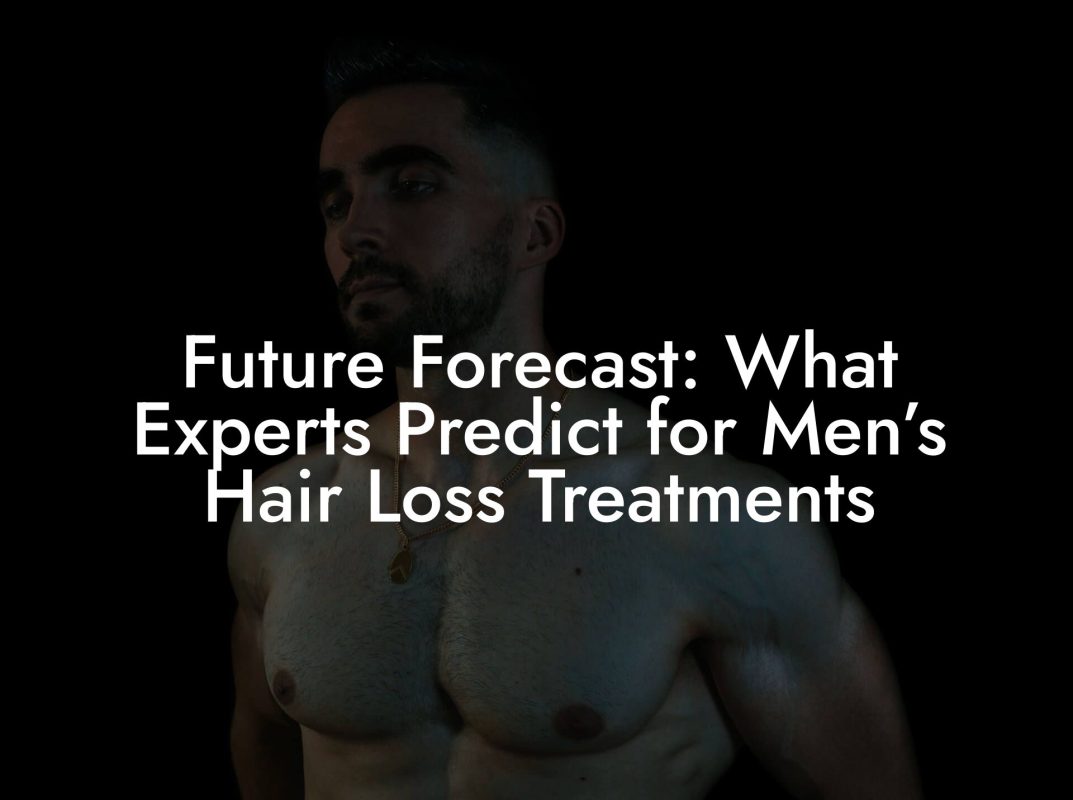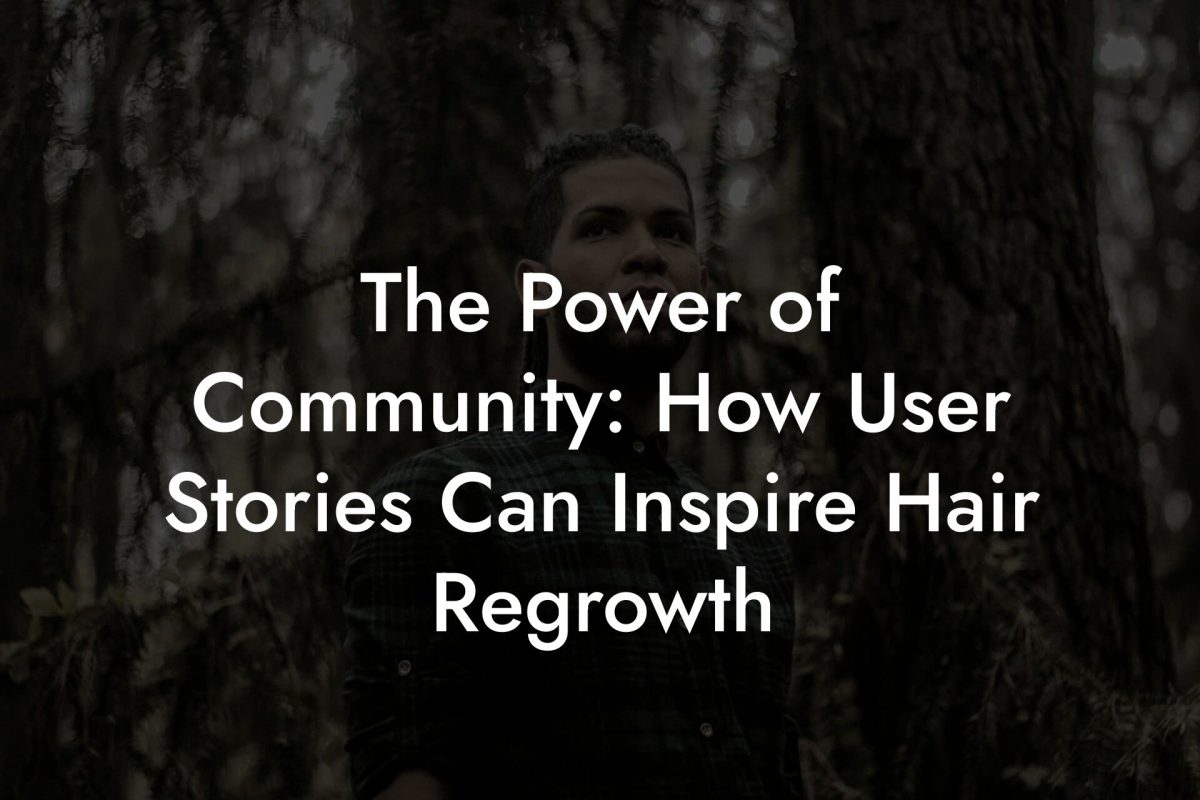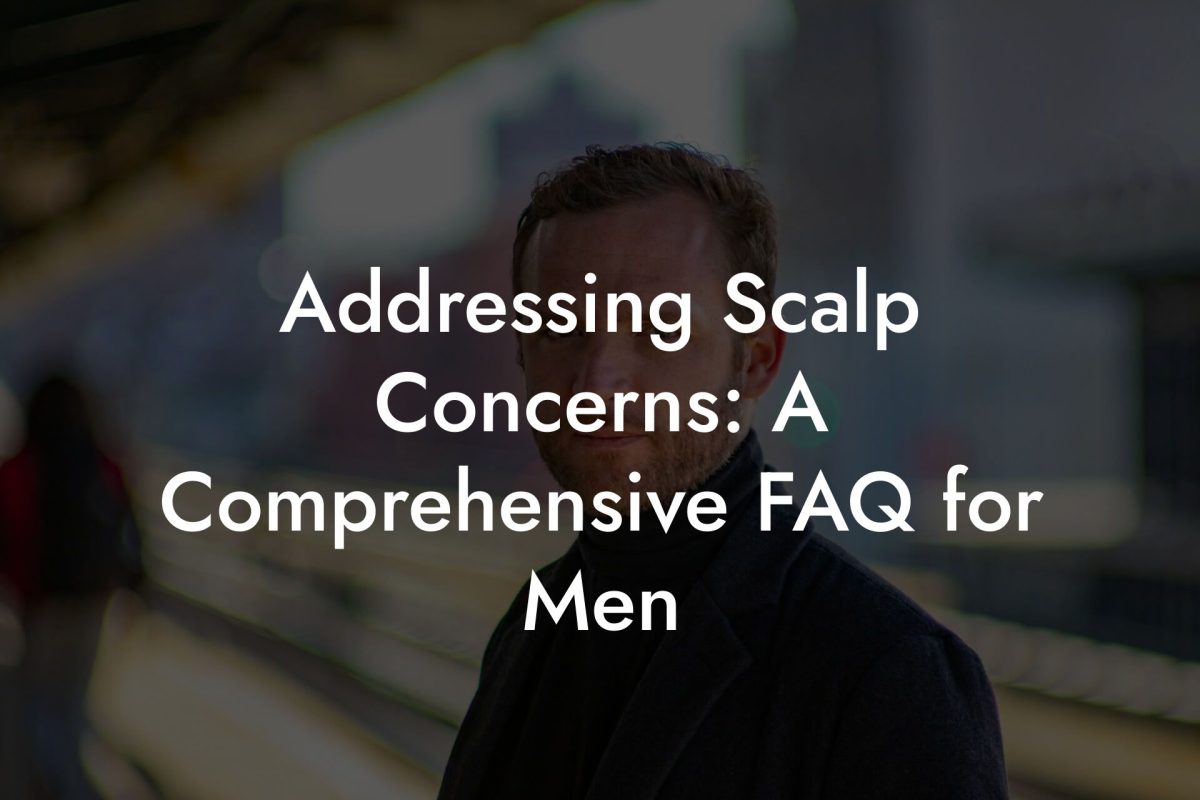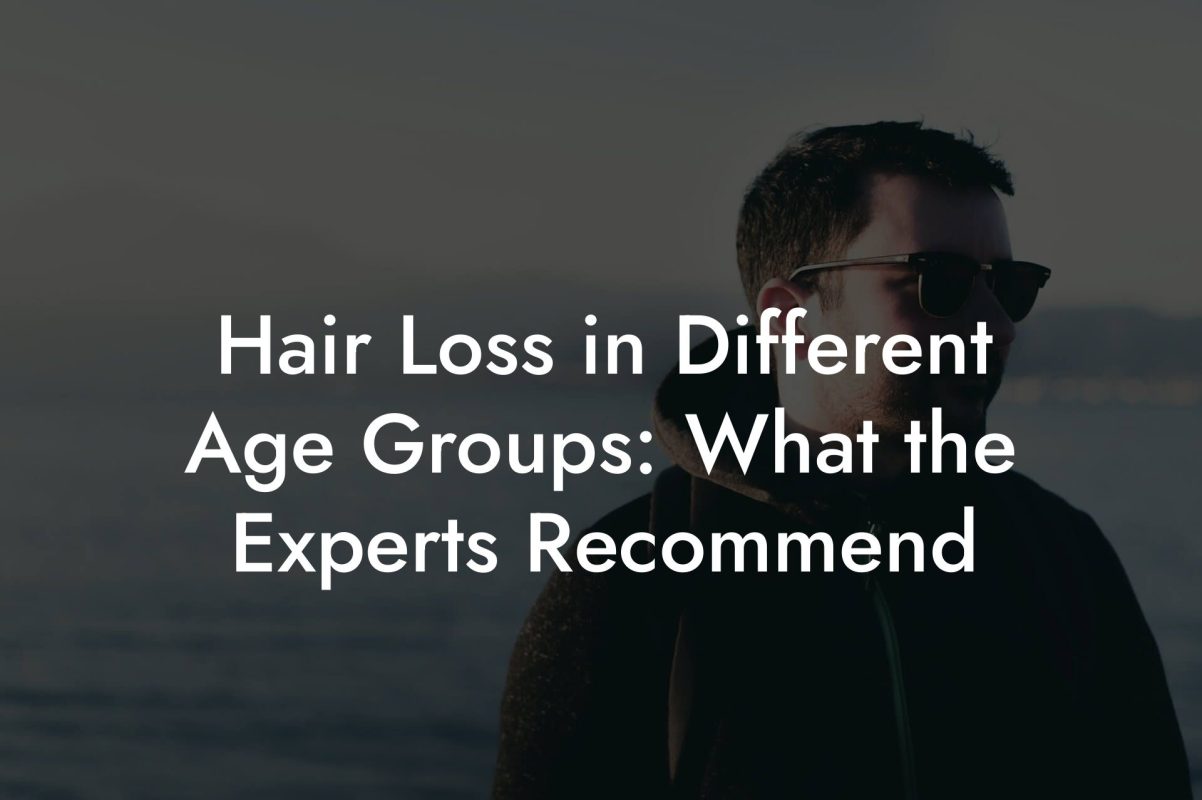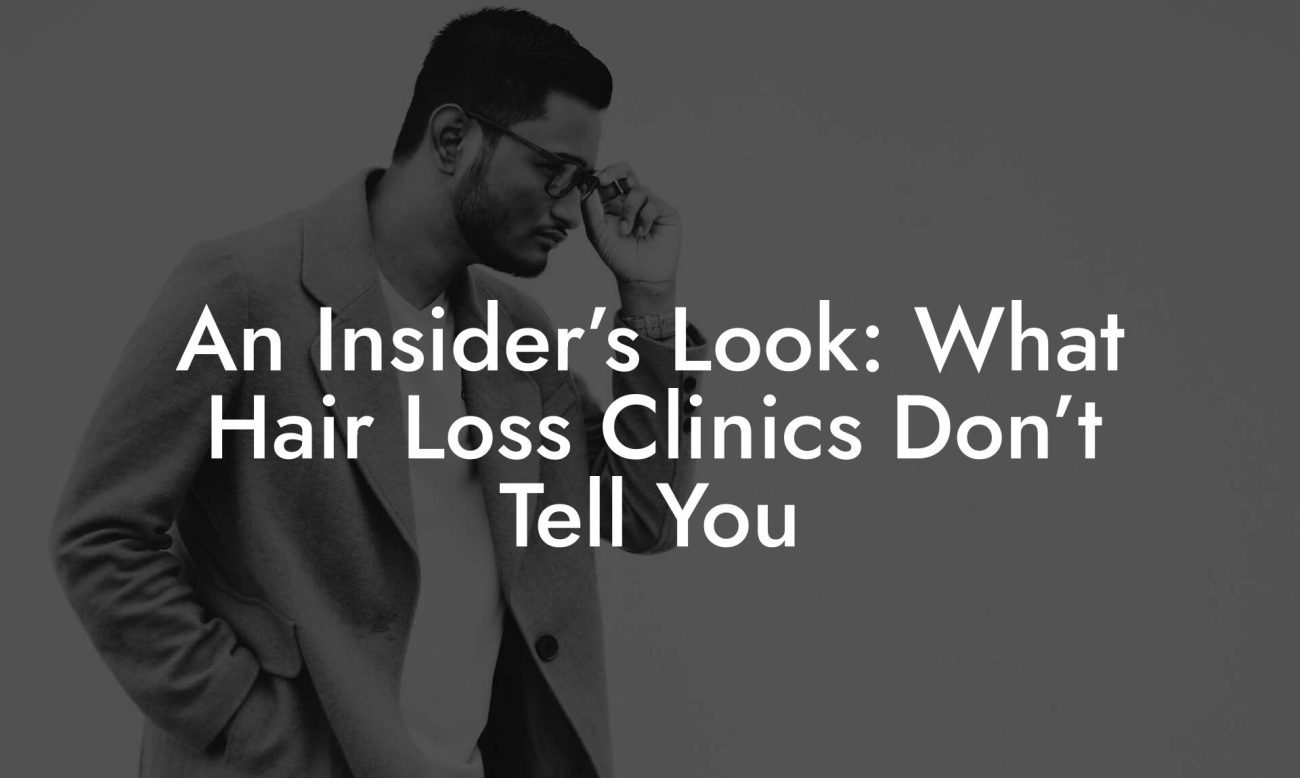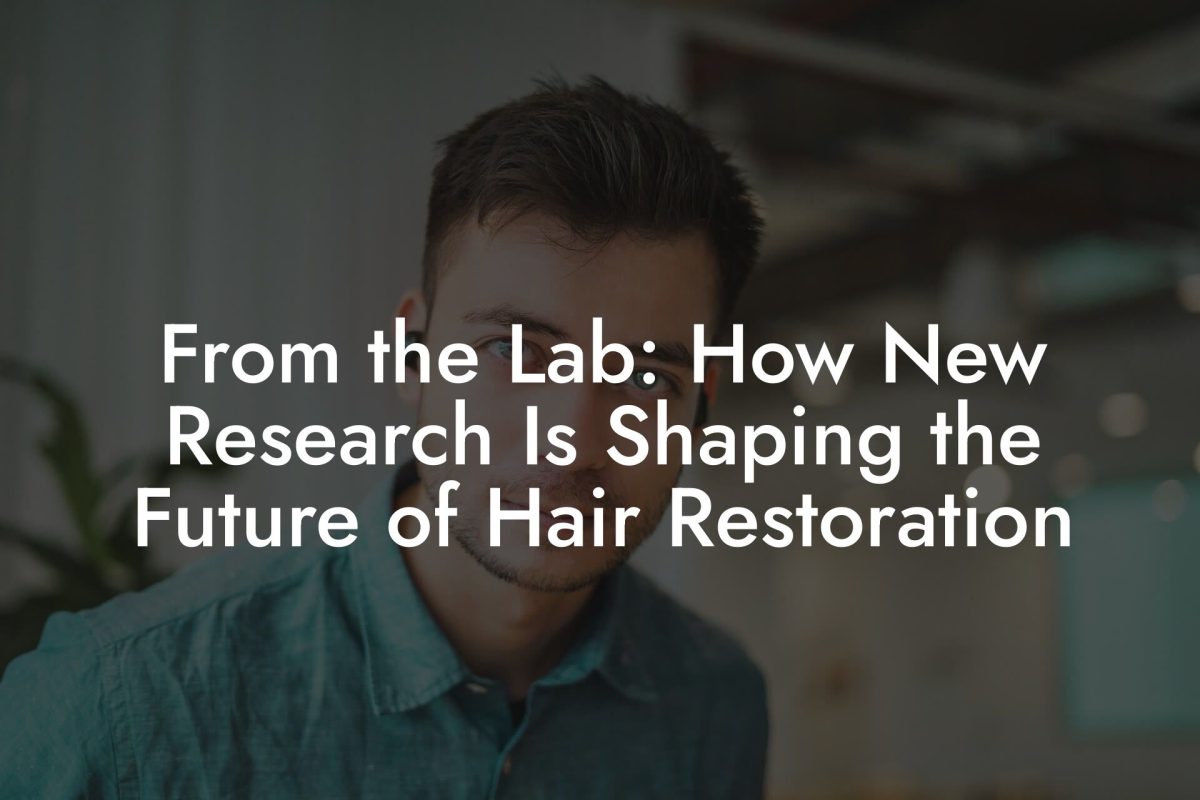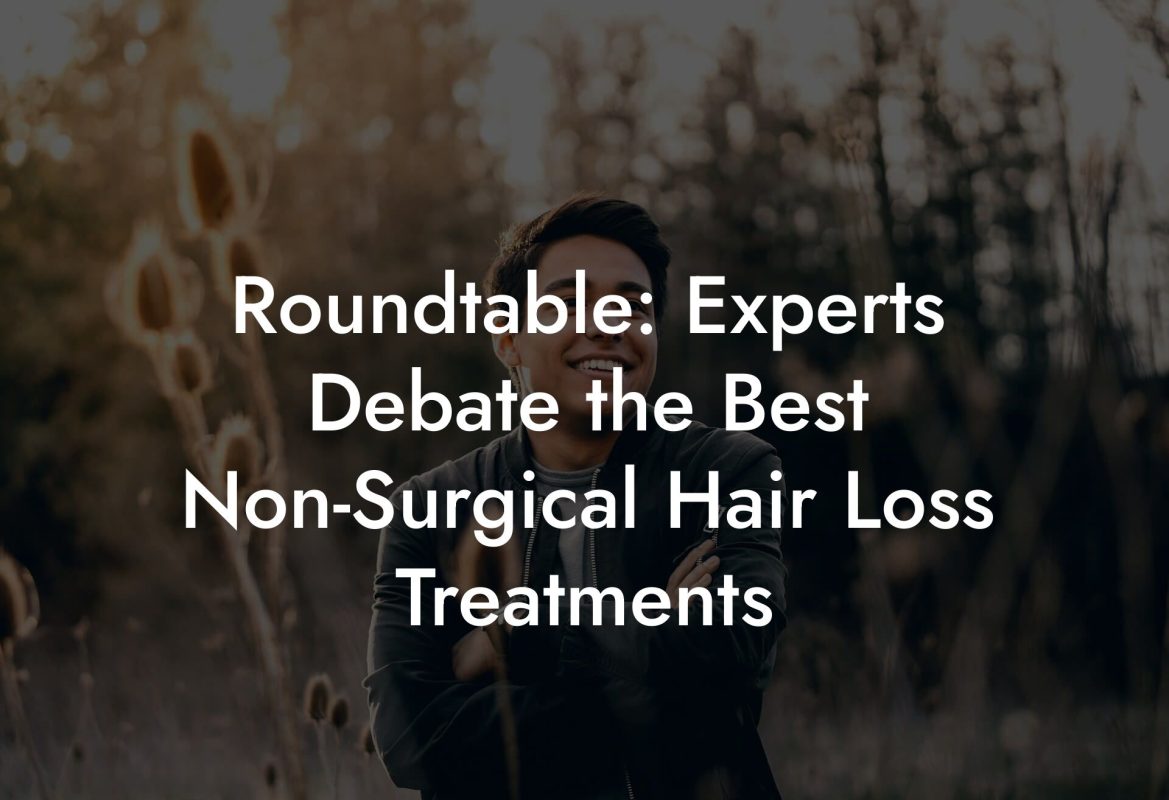Hair Loss Library
The Ultimate Hair Loss Q&A: Everything You Need to Know
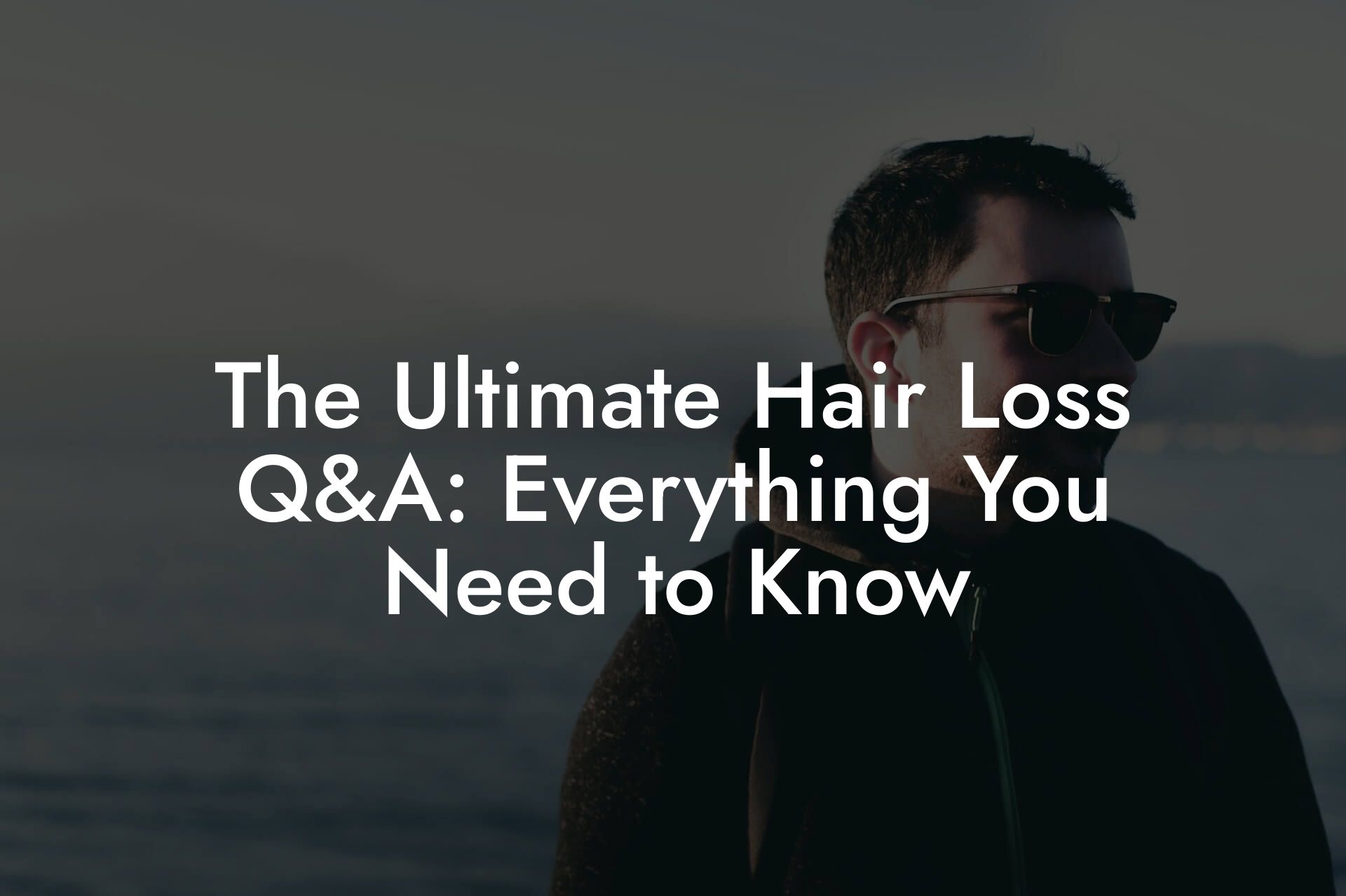
Welcome to the ultimate guide to tackling hair loss—an epic Q&A journey designed especially for the modern man who's ready to ditch the myths, the embarrassment, and those sky-high medical bills. Here at Mane Matrix, we believe you shouldn’t have to sacrifice your swagger for thinning hair. So, buckle up as we dive into every twist and turn of hair loss—imagining follicles as battle-hardened warriors, debunking tall tales, and serving up clever, science-backed strategies that are as relatable as they are revolutionary.
Understanding Hair Loss: The Basics You Need to Know
Let’s start with the obvious: hair loss is as old as time, but that doesn’t mean we have to accept it as a dooming fate. For many men, spotting more scalp than hair in the mirror can feel like an unwelcome reminder of genetics, stress, or even a poor diet. But fear not: understanding why hair sheds and how follicles work is the first step in taking control of your mane’s destiny.
Hair loss can be caused by several factors, and while it can seem like an unsolvable mystery (cue dramatic music), the truth is often a combination of genetic predisposition, hormonal fluctuations, lifestyle influences, and environmental stressors. Whether you’re noticing a receding hairline, thinning crowns, or overall scalp exposure, the root causes remain surprisingly similar across the board.
What Exactly Causes Hair Loss?
Think of your hair as a team of dedicated employees that get laid off when the economy (or in this case, your body) takes a hit. The most common culprit in male hair loss is androgenetic alopecia—a genetic condition triggered by dihydrotestosterone (DHT), a hormone that shrinks hair follicles over time. But DHT isn’t the only one in the blame game. Other factors include:
- Genetics: If your dad, granddad, or even your cool uncle battled balding, chances are, you might too. It’s all in the family.
- Stress: That nerve-wracking job, relationship drama, or binge-watching that non-stop series can wreak havoc on your hair growth cycle.
- Poor Nutrition: Skipping your greens or living off fast food might be affecting not only your waistline but also your hair follicle's health.
- Environmental Factors: Pollutants, UV rays, and even harsh grooming products can contribute to weakened hair strands.
- Medical Conditions: Thyroid issues, autoimmune diseases, and even certain medications can lead to unexpected hair shedding.
With a little insight on the causes, you’re better armed to sort fact from fiction—which is exactly what we’re doing.
Know Your Follicles: The Science Behind Hair Growth
Imagine your hair follicles as tiny factories on your scalp, each working 24/7 to produce strands of hair. These minuscule marvels undergo stages of growth, rest, and shedding in what is known as the hair growth cycle. When everything is running smoothly, you get a full head of hair; when it’s disrupted, you might end up with a patchy situation.
The Hair Growth Cycle Unwrapped
The cycle consists of three main phases:
- Anagen (Growth Phase): This is the prime time when your follicle is hard at work producing hair. Ideally, this lasts anywhere from two to seven years, which is why some hairs grow longer than others.
- Catagen (Transitional Phase): A much shorter phase lasting about two to three weeks, where your hair stops growing and the follicle shrinks. Think of it as the “time-out” before the next stage.
- Telogen (Resting Phase): The follicle takes a break, typically for about three months. At the end of this phase, the hair falls out, and a new anagen phase begins.
When more hairs enter the telogen phase than the anagen phase can support, you begin to see a decrease in density. And in many men, this shift is gradual—almost like a slow-motion retreat of your hairline.
But the beauty of understanding this cycle is knowing that it isn’t an inevitable march towards baldness. Treatments and lifestyle modifications can help reset, stimulate, or even prolong the growth phase, giving you more time to enjoy a fuller head of hair.
Debunking Myths and Misconceptions: What You Shouldn’t Believe
In the wild world of hair care advice, myths abound like bad hair days before a big event. Whether it’s that wearing hats causes baldness or that expensive shampoos are a magic fix, it’s time to set the record straight.
Myth 1: Shaving Your Head Accelerates Hair Loss
Shaving merely cuts hair at the surface level; it doesn’t affect the underlying follicle or its growth cycle. If anything, a fresh shave might make your scalp appear smoother and give you a stylish, rebellious look.
Myth 2: Only Older Men Experience Hair Loss
Hair loss can start as early as your 20s or 30s—especially if it runs in your family. So, don’t be surprised if you notice a little extra scalp in the mirror sooner than expected.
Myth 3: Expensive Products Are Always Better
While some high-end hair care products show promise, they’re not a guaranteed cure for hair loss. Often, a consistent routine that includes proven ingredients like minoxidil or caffeine-based shampoos can work wonders without breaking the bank.
Recognizing these myths is a key step in focusing on strategies that actually make a difference—strategies that are grounded in solid science and smart lifestyle choices.
Modern Treatments: What Science and Innovation Offer
Now that you’re equipped with the basics, let’s explore the arsenal of modern treatments that are redefining the battle against hair loss. Cutting-edge therapies blend decades of research with innovative techniques to nudge those follicles back into action.
Topical Treatments: The Frontline Warriors
Topical treatments like minoxidil have gone from niche products to household names in the hair loss world. Applied directly to the scalp, minoxidil stimulates blood flow and extends the anagen phase, helping to maintain hair density. The key is consistency—those tiny droplets need daily attention to work their magic.
Oral Medications and Hormone Blockers
Enter finasteride, an oral medication that tackles hair loss from the inside out by blocking the conversion of testosterone into DHT. By reducing the DHT levels that shrink hair follicles, finasteride helps prevent further hair loss and can even encourage regrowth. While effective, it does come with its set of considerations, so it’s best to chat with a medical professional if you’re curious.
Platelet-Rich Plasma (PRP) Therapy
Think of PRP therapy as a fancy injection that uses your body’s own healing power. Your blood is drawn, spun into a concentrated plasma reboot, and then injected into the scalp to stimulate hair follicles. Many patients swear by the natural boost in hair density it provides, and it’s becoming an increasingly popular non-invasive option.
Low-Level Laser Therapy (LLLT)
Laser therapy might sound like something out of a sci-fi movie, but low-level lasers are a well-researched treatment for hair loss. Exposing the scalp to these specific wavelengths of light can help stimulate cellular activity in hair follicles, effectively giving them a little extra pep in their step.
Emerging Technology and Future Trends
Innovation never sleeps, and neither do the scientists working on the next big breakthrough in hair regeneration. From stem cell research to gene therapy, the future of hair loss treatment promises personalized solutions that could one day make baldness a relic of the past. Stay tuned—your hair’s best days might just be ahead.
Lifestyle and Nutrition: Feed Your Follicles Right
Hair loss isn’t only about creams, pills, or lasers. What you choose to put on your plate and how you live your life plays a huge role in the health of your hair. It turns out that the same nutrients that make you feel energized (and Instagram-worthy) also give your follicles a fighting chance.
The Power of a Balanced Diet
A nutrient-dense diet isn’t just for gym enthusiasts and foodies—it’s a cornerstone of robust hair health. Foods rich in protein, vitamins (like biotin, vitamin D, and vitamin E), and minerals (including iron and zinc) are essential for maintaining strong hair. Think lean meats, leafy greens, nuts, and even a few indulgences like dark chocolate (because balance is key).
Don’t forget hydration! Drinking plenty of water helps to nourish your hair from within, ensuring it stays as resilient as your daily hustle.
Stress Management: Because Your Hair Deserves Peace Too
We all know that modern life can be a rollercoaster of stress and deadlines. Chronic stress increases the production of certain hormones that can trigger hair shedding. Techniques like meditation, regular exercise, proper sleep, and yes—even a little humor—can go a long way in keeping your scalp calm and collected.
The Role of Exercise in Hair Health
Regular physical activity improves blood circulation throughout your body, including your scalp. This means more oxygen and nutrients reaching those hair follicles, which can help stimulate growth and overall health. Whether it’s hitting the gym, going for a jog, or dancing like no one’s watching at home, keep moving to keep your hair grooving.
DIY Remedies and At-Home Hacks: Natural Boosts for Your Mane
Not every solution needs to come in a fancy bottle or require a prescription. Many times, nature lends a hand with home remedies that can complement professional treatments and give your hair a little extra love.
Essential Oils and Scalp Massages
Oils like rosemary, peppermint, and lavender aren’t just for aromatherapy. When diluted with a carrier oil (coconut or jojoba work well), these essential oils can nourish your scalp and promote blood flow. A weekly scalp massage using these oils can not only feel luxurious but also help stimulate your hair follicles.
Herbal Teas and Natural Antioxidants
Sip on green tea or other antioxidant-rich herbal teas throughout the day. Loaded with polyphenols, these beverages not only boost your overall health but might also help combat the oxidative stress that can lead to hair loss.
Natural Shampoos and Conditioners
While commercial shampoos often promise miracles, sometimes a switch to a more natural alternative can yield better results. Look for products that contain sulfate-free cleansers, natural extracts, and vitamins that nourish your scalp without stripping it of natural oils.
Remember, the goal here isn’t to replace medically proven treatments but to supplement them with natural care that respects your body and your budget.
Mane Matrix: Your Non-Invasive Guide to Hair Loss Analysis
At Mane Matrix, we get it. The traditional route of expensive, awkward doctor visits and invasive treatments isn’t for everyone. That’s why we’re dedicated to providing expert analysis of your hair loss through smart, non-invasive methods. Our approach is designed to empower you with information and tailored advice—so you can take confident strides towards reclaiming your hair and your self-assurance.
We leverage cutting-edge technology, data-driven insights, and a healthy dose of humor (because why not?) to help you understand your hair’s unique story. Our experts break down the complex science behind hair loss into relatable, actionable tips that fit seamlessly into your lifestyle—no lab coats required.
Think of Mane Matrix as your trusted partner on this journey. Whether you’re curious about the latest treatments, exploring natural remedies, or simply want to understand what’s happening with your hair, our resources are designed to give you the power to decide your next steps without the hassle of traditional consultations.
Resources and Community Support: Your Next Steps
Navigating the world of hair loss can sometimes feel like wandering a maze with no map. But here’s the good news: you’re not alone in this journey. From online communities to expert webinars and detailed guides, a wealth of resources awaits you.
We pride ourselves on building a community that’s as supportive as it is knowledgeable. Join our Mane Matrix network and connect with thousands of other men who share tips, personal successes, and even a few hilarious memes about bad hair days. Whether you’re searching for advice on managing stress, recommendations for the best hair care products, or simply want to share your progress, there’s a space for you here.
Explore our blog posts, downloadable guides, and video tutorials that dive deep into each aspect of hair health—from detailed explanations of the hair growth cycle to practical tips on daily scalp care. Don’t hesitate to reach out on our discussion boards or social media pages. Your next breakthrough might just come from a conversation with someone who’s been there before.
And if you need personalized guidance, our expert team is ready to help. We offer tailored reports that analyze your unique hair loss patterns without the embarrassment of a clinical setting. Embrace this supportive community as your sounding board and a vital resource on your journey to not only reclaim your hair, but also your confidence.
Advanced Treatment Strategies: Combining Science, Nature, and Innovation
In this fast-evolving world, staying ahead of the curve when it comes to hair loss treatments doesn’t mean you have to choose between modern science and natural remedies. In fact, the best approaches today integrate both, making the most of clinical advances while also harnessing the power of nature.
Combination Therapies: The Best of Both Worlds
Many leading experts now advocate for a layered strategy that combines topical applications, oral medications, and natural boosters. For example, pairing minoxidil with essential oil scalp massages while maintaining a vitamin-rich diet can create a synergy that revitalizes your hair follicles from multiple angles. This isn’t a one-size-fits-all method—think of it as a bespoke regimen crafted to suit your lifestyle and your hair’s unique needs.
Tracking Your Progress with Technology
Gone are the days of guessing whether your routine is working. With apps and wearable trackers dedicated to health and wellness, you can now monitor minute changes to your hair’s growth pattern. These digital tools can help you adjust your treatments in real time, offering insights into what makes a measurable impact. All without the clunky experience of in-person consultations.
Emotional Resilience Through the Journey
Let’s face it—dealing with hair loss is as much a mental game as it is physical. Embrace mindfulness techniques, journaling, or even finding a workout buddy who understands your struggles. Building emotional resilience not only improves your overall well-being but also creates a positive mindset that can indirectly boost your treatment outcomes.
At the crossroad of science, nature, and innovation, your tailored strategy is the secret weapon that empowers you to take back control over your hair loss narrative.
Celebrating Small Wins: Tracking Your Journey to Fuller Hair
Change doesn’t happen overnight, and the road to revitalized hair is often paved with small, consistent victories. Whether it’s noticing a new, stubborn hair sprouting in that receding area or simply feeling more confident sporting a new haircut, every win counts.
Document your journey—snap before-and-after photos, jot down your experiences in a journal, and celebrate your progress with friends who uplift you. Remember, persistence is key, and your effort today sets the stage for the transformation of tomorrow.
Embrace every tiny stride as a monumental step forward. After all, every epic saga is built on moments of quiet progress that eventually culminate in a triumphant turnaround. Your journey is uniquely yours, and each milestone is a badge of honor on the path to a fuller, healthier mane.
The Ultimate Hair Loss Q&A: Everything You Need to Know
You’ve got questions, and we’ve got answers. In this sprawling Q&A section, we tackle everything from the science behind hair loss to practical tips for boosting confidence when you notice a little extra scalp. Let’s demystify this hairy business once and for all.
Q1: What are the main causes of hair loss in men?
The primary factors include genetics (hello, androgenetic alopecia), stress, poor nutrition, and environmental influences. While hormonal imbalances and medical conditions can also play a role, most cases are linked to inherited traits that trigger hair thinning over time.
Q2: Is hair loss inevitable as I age?
Not necessarily. Although aging brings changes, modern treatments allow you to manage and even reverse some effects of hair loss. Your genes might set the stage, but lifestyle changes and timely intervention can rewrite the narrative.
Q3: How long does it take to see results from treatments like minoxidil?
Patience is key—typically, it can take anywhere from 4 to 6 months before you notice significant changes. Consistency and correct application are crucial for achieving lasting results.
Q4: Can stress really cause hair loss?
Absolutely. Stress can trigger a temporary condition known as telogen effluvium, where a large number of hairs enter the resting phase at once, leading to noticeable shedding. Managing stress through exercise, meditation, or even a good laugh can help mitigate this.
Q5: Are natural remedies effective?
They can be, especially when used in conjunction with scientifically proven treatments. Natural remedies like essential oils, herbal supplements, and a nutrient-rich diet provide additional support but should be seen as complementary rather than standalone solutions.
Q6: What role does nutrition play in hair health?
A massive one! A balanced diet rich in proteins, vitamins, and minerals fuels healthy hair growth and supports the repair of damaged follicles. Foods like eggs, spinach, salmon, and nuts can be game-changers in maintaining vibrant hair.
Q7: Is it safe to use over-the-counter hair loss products?
Most over-the-counter products, such as minoxidil, are safe for many users. However, it’s important to conduct a patch test and consult a healthcare provider if you have underlying conditions or concerns.
Q8: How do I know if I need professional help?
If you’re experiencing rapid hair loss, significant scalp irritation, or other symptoms that worry you, it may be time to seek expert advice—even if it’s just for a non-invasive consultation to analyze your hair loss patterns.
Q9: Can lifestyle changes really make a difference?
Yes, indeed. Exercise, stress management, and a nutrient-rich diet can boost overall scalp health and support hair regeneration. Small changes can compound over time, making a noticeable difference.
Q10: What innovative treatments should I keep an eye on?
Future trends like stem cell therapy, customized gene treatments, and advanced laser treatments are on the horizon. These emerging technologies promise personalized solutions that could one day revolutionize how we address hair loss.
Your Journey to Regaining Confidence and Control
Embracing the challenges of hair loss isn’t just about managing aesthetics—it’s about reclaiming your confidence and feeling like the best version of yourself. Every strand has a story, and every solution is a step toward taking back control over your life. With the right combination of science, natural remedies, lifestyle changes, and the support of our Mane Matrix community, you’re well-equipped for the journey ahead.
Picture this: a future where you wake up confident, knowing you’ve got a plan in place, not just to slow down hair loss but to actively nurture and protect your mane. Whether you decide to experiment with modern treatments, revamp your diet, or lean on the support of a growing community of like-minded men, every action you take is a win.
It’s time to stop feeling embarrassed or overwhelmed by hair loss and start embracing it as just one part of your overall story. Remember, your value isn’t measured by the number of hairs on your head—it’s measured by the resilience, authenticity, and passion with which you navigate life’s challenges.
So go ahead, explore the strategies, try out a few tips, and immerse yourself in the wealth of resources available at Mane Matrix. Because the ultimate goal isn’t just about fuller hair—it’s about a fuller, more confident you.
If you loved this article... Dive deeper into the world of mens hair loss with our most popular sections. If there is anything you think is missing or anything you would love for us to write about, just give us a shout.
Expert Interview: Leading Dermatologists Discuss Men’s Hair Loss Solutions
Case Study: How One Man Reversed His Hair Loss Naturally
Hair Loss FAQs: Your Top Questions Answered by Experts
Behind the Scenes: A Day in the Life of a Hair Transplant Surgeon
Success Stories: Real Men Share Their Hair Regrowth Journeys
Debunking Hair Loss Myths: Insights from Top Trichologists
The Role of Genetics: Experts Weigh in on Inherited Hair Loss
How Lifestyle Changes Made a Difference: Inspiring Hair Regrowth Stories
In-Depth Q&A: What Every Man Should Ask Before a Hair Transplant
Roundtable: Experts Debate the Best Non-Surgical Hair Loss Treatments
From the Lab: How New Research Is Shaping the Future of Hair Restoration
Personal Journeys: Overcoming Hair Loss and Embracing Confidence
The Ultimate Hair Loss Q&A: Everything You Need to Know
An Insider’s Look: What Hair Loss Clinics Don’t Tell You
Expert Tips for Maximizing Hair Restoration Treatment Results
Hair Loss in Different Age Groups: What the Experts Recommend
Addressing Scalp Concerns: A Comprehensive FAQ for Men
Analyzing Competitor Gaps: How Mane Matrix Stands Out in Hair Loss Content
The Power of Community: How User Stories Can Inspire Hair Regrowth
Future Forecast: What Experts Predict for Men’s Hair Loss Treatments
